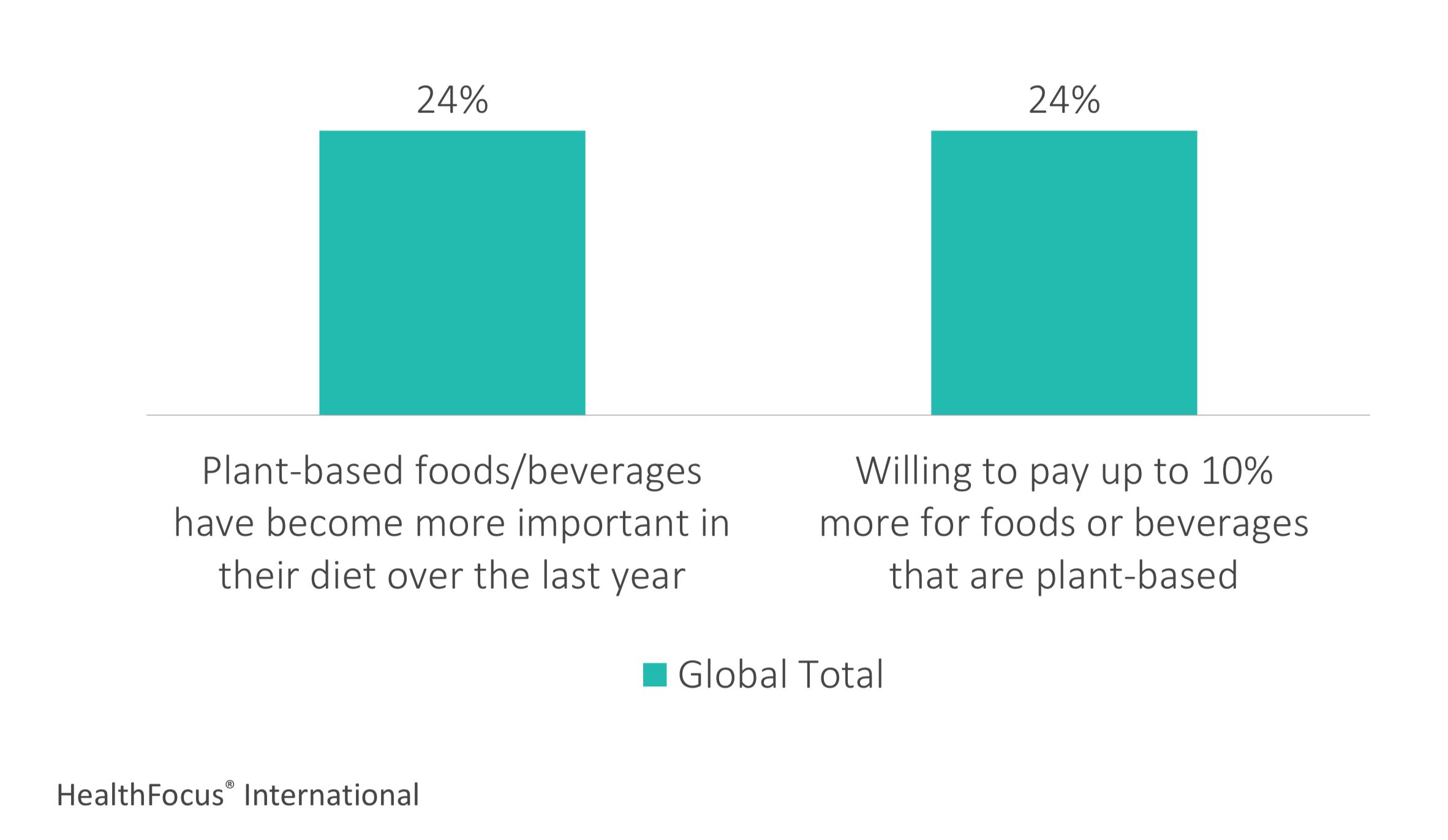Globally, 46% of shoppers say they 'always' or 'usually' choose plant-based foods and beverages and 24% say plant-based products have become a more important part of their diets over the past year, according to the recent Navigating the World of Plant report from HealthFocus International. Core motivations for this shift were “broad and compelling”, the market researcher said, with shoppers citing long-term health, daily health and disease prevention as top drivers.
For Latin America, plant based foods and beverages have become more important to 19% of shoppers over the last year but purchase motivations differ slightly.
'Eating clean' the top plant push
For the 32% of Latin American shoppers always or usually choosing plant-based foods and beverages, 'eating clean' was the number one motivator, according to HealthFocus International.
In Brazil 36% of shoppers always or usually chose plant-based foods and beverages; 32% in Colombia; 31% in Mexico; and 28% in Argentina. Each of these markets, except Brazil, cited 'eating clean' as the number one motivation behind plant-based purchases; Brazilians cited 'promotes daily health' as the top purchase driver.
Cali Amos, research manager at HealthFocus International, said the number of shoppers in Latin America always or usually choosing plant-based foods and beverages was on a par with Europe and ahead of North America.

A look at how often shoppers in the region consumed meatless meals also put it ahead of the US – 72% of Argentinians; 68% of Mexicans; 58% of Brazilians; and 54% of Colombians consumed meatless meals once a week or more versus just 41% in the US.
And Amos told NutraIngredients-LATAM interest across Latin America would only increase. “While this trend is still developing and currently falls behind other macro trends like sugar reduction, natural and clean eating – the connection with health, sustainability and clean eating has positioned plant as a trend that will continue to grow and change the industry.”
“...Like protein, shoppers see plant as a positive that they can't get enough of in their diet,” she said.
Strengthening the 'health halo' of supplements, beverages and protein
For health and nutrition manufacturers, Amos said the trend towards plant created a “clear opportunity” to “strengthen the health halo” of products, as well as overcome consumption barriers associated with traditional products.
“When it comes to supplement use, plant-based ingredients can help convey a natural source which is currently a barrier for supplements. Nearly a quarter of LATAM shoppers say they don't use supplements more often because they are not natural, and this is especially true in Argentina where 20% of shoppers feel this way,” she said.
Pushing a clean and healthy vision with plant-based nutritional products, therefore, was vital to connect with Latin American shoppers, she said, who were distinctly driven by a desire to eat clean. Using “real and recognizable ingredients”, Amos added, was also key.
The current split between plant-based food and beverage consumption in Latin America swayed in favor of food, with 54% of Latin Americans consuming plant-based meals once a week or more and just 37% consuming plant-based beverages once a week or more.
However, Amos said this highlighted a “strong opportunity” for engaging those interested in plant-based beverages given the room for growth. There was also clear potential to drive plant proteins, she said.
“Interest in plant protein is especially strong in Latin America, with over 70% 'extremely interested' or 'interested' – ahead of all other regions surveyed – and 32% of these shoppers are willing to pay a premium of up to 10% more for foods and beverages that offer plant protein,” she said.
Overcoming key barriers to consumption
Amos said that, like always, there were some barriers to the consumption of plant-based products but for Latin America these should be straightforward to overcome.
In Mexico, 43% of shoppers said availability or variety of plant-based products was the top barrier to consumption, compared to just 38% citing taste and enjoyment and 31% citing price. In Brazil, 39% of shoppers said price was the biggest barrier and 37% cited availability and variety as well as taste and enjoyment a barrier.
“The key barriers to increased consumption are relatively easy to overcome and appear grounded in perception as much as reality: taste, price, and availability. The perceived shortage of selection availability speaks highly to the opportunity and need for aggressive new products,” Amos said.

